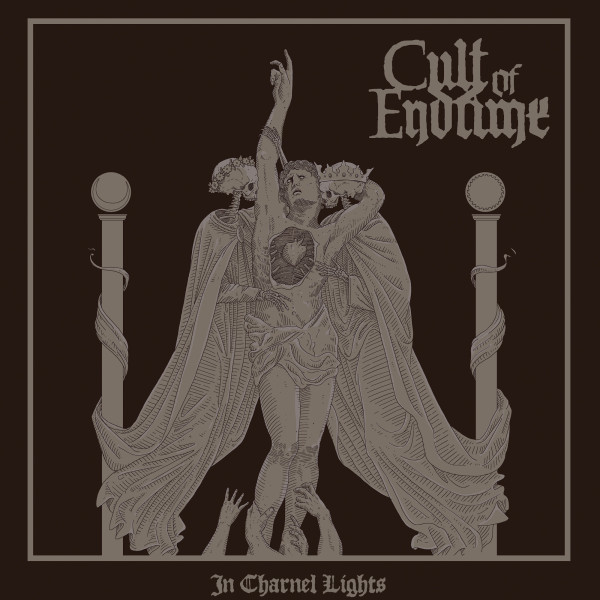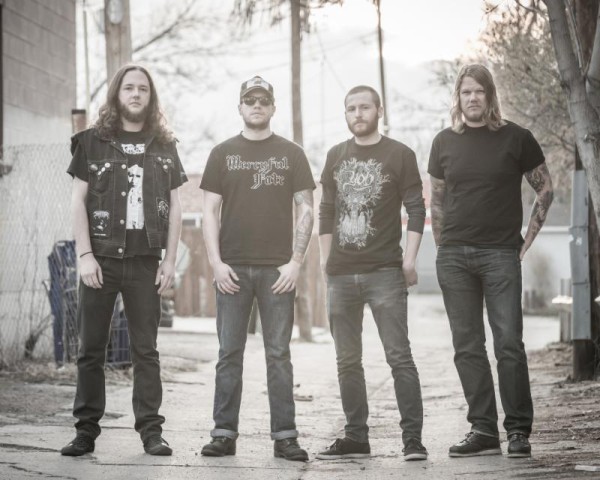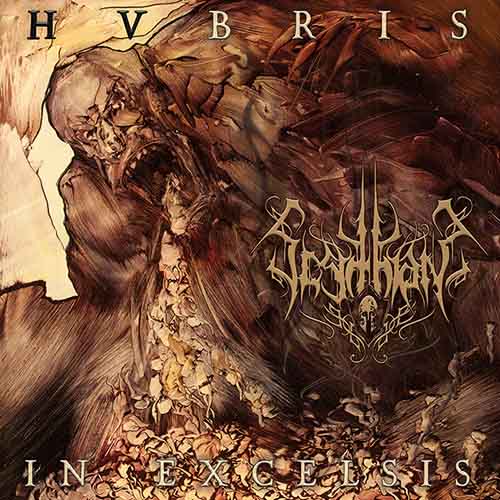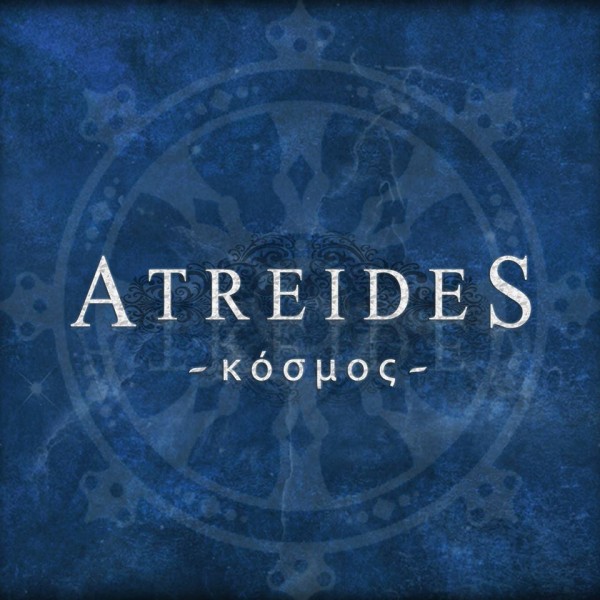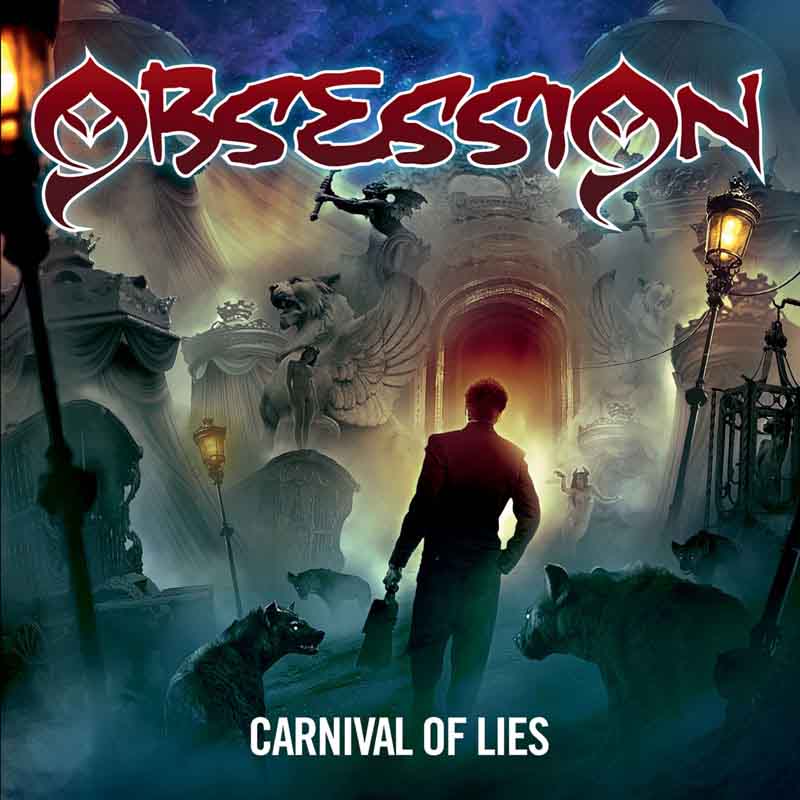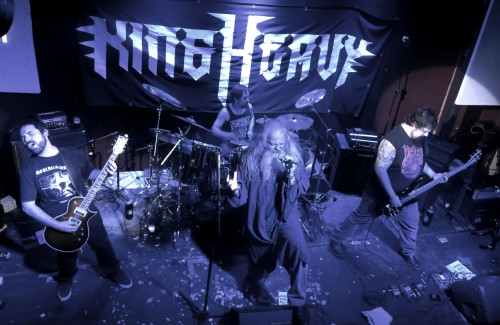Among internet metal sites, Metal-Rules.com has a unique niche as being both popular with newer fans and proud of classic metal. During the last few melees over censorship, I encountered the Managing Editor there, a relaxed fellow by the name of Joshua Wood. Since we are both metal nerds, it seemed an interview was in order, and to his credit, it ended up being more interesting and more metal than people might suspect. Give a big hand in welcoming Joshua Wood, and read on…
What first attracted you to heavy metal?
Easy! Kiss Destroyer, 1976. The excitement, the fire, the blood, the power and the electric energy of it all. The top mainstream bands of the time were all soft rock and disco and along came…Kiss! They just totally blew everyone away.
What first attracted you to writing?
It’s funny, I don’t really consider myself a ‘writer.’ I’m just a guy with lots of strong opinions about metal! My main goal always was, and I suspect always will be, to support the underground and ‘real’ Metal bands, as per our site’s tagline, ‘Supporting Real Metal’ since 1995.” I’m not a critic; I want to support a band I enjoy and feel could use the support and or exposure. I don’t waste my time criticizing bands I don’t like, why bother? Live and let die, they can find their own audience. I’d rather write a positive review of a band and help them instead of slagging one of many, many crappy bands. As a result I write very, very few negative type reviews, whereas some mean-spirited critics seem to revel in finding new and amusing ways to insult bands. Those reviews are funny to read though!
How did you get involved with Metal-Rules.com? Today, as I understand it, you are the Managing Editor. How did you get into this job?
I started as a ‘Guest Writer’ (like all of our staff) back in 2001. Overtime I contributed and showed I was reliable, could meet simple deadlines, brought some creativity to the table and generally showed a passion to support the site. Back then there were very few website dedicated to metal, especially the metal I loved, not the nu-metal that was infecting the scene at the time and it was the perfect forum to show that there were still killer new bands out there besides the crappy/trendy sub-genres. Over time, I became the Managing Editor. It is strictly volunteer.
What does the job entail? What are the fun parts, and the harder parts?
I tend to oversee our writers/photographers, give people encouragement, support and direction. I contact labels, agents, bands promoters on behalf of the site, give out assignments and of course add and edit the content to the site. It’s always fun talking to fellow like-minded metal heads about metal and I suppose doing the book and DVD reviews is my favourite part. I’ve written over 1000 reviews for the site over the years! We have a private Metal-Rules Staff Facebook page where we discuss the months assignments, who is covering or reviewing what so we keep it all straight.
The least fun part is having to reject bands or labels that just don’t fit our mandate or interest, but I always try to be supportive and suggest they try other avenues. Sometimes when some crappy rap-rock and mallcore band sends me stuff or is asking for help I feel like saying, “Dude! Do you even LOOK at our site? We are so against the kind of music you make, why did you waste your time contacting us?” lol. Sometimes fixing the countless little mistakes of submissions can get laborious, but I just put on an album and type away!
What sort of metal do you like? Do you distinguish by genre, quality of bands or some other traits that they have?
I’m a fan of many forms/styles/sub-genres of hard rock and metal. It’s almost easier to say what I don’t like which are:
- Grunge
- Rap-Metal
- Nu-Metal
- Mallcore
- Metalcore
- Screamo
- Industrial
- Alternative
- Crossover
- Punk
- Shoegaze
- Ambient
- Post Rock
- Post Black
I’ve been actively buying and collecting metal since the late 70s so I have a substantial personal collection of just over 10,000 items, albums, books, DVDs, cassettes, magazines, etc, including a decent stock of rarities, and I love it all! If you include authorized digital promo copies my collection swells to 15,000 items. Thrash, Death, Black, Doom, Power, etc have lots of every style to suit my mood. I do distinguish between genres but I try to keep it to a dozen or so broader genres, but I also enjoy micro-analyzing the subtle differences in bands styles, scenes and sounds.
I’m also the co-chair of the Heavy Metal committee for CARAS (Canadian Academy of Recording Arts And Sciences) the group who host/present Canada’s national music award program, the Juno awards…the equivalent to the Grammys. I tend to use those analytical skills in that role to see what really qualifies as ‘metal’ when it comes time to screen submissions for the awards program. You would be surprised the amount of crap that people consider ‘metal’ and submit to us!
What do you think distinguishes heavy metal from rock music?
That is a tough question! I think Metal has a bit more aggression, speed, power attitude, rebelliousness, negativity, skill, dynamics, sincerity, than the ‘average’ rock band.
Can you name the metal bands that have influenced you most, as well as the writers and other non-musical influences who shape what you do?
The bands that influence me the most are some old favourites, W.A.S.P., Manowar, Thor, Anvil, Raven, and Yngwie Malmsteen. These guys get it. The never bow to trends, they never break, they are all underdogs, survivors, productive and reliable! Many younger fans make fun of those bands but they could learn a lesson or two on how it done to persevere and survive to create real metal art. I doubt many of the new, trendy bands will ever have a 15-20 album, 30-40 year career like the above list.
Martin Popoff is a big influence, we have become personal friends over the years which is cool. Non-musical influences would be the normal day to day stuff, playing sports (soccer) my career, family, hobbies and volunteer work. It all keeps me busy, I wish I had more time to dedicate to the site as you can tell by how long it took me to respond to your kind request for an interview!
I recently wrote that modern metal — nu-metal, post-metal, metalcore and indie-metal — have one thing in common, which is that they are composed like rock bands but use metal riffs sometimes. What do you think distinguishes older heavy metal, underground metal and modern metal from each other?
I think I would agree! I feel much of the younger modern Metal bands confuse ‘heaviness’ with volume and screaming. I understand that there is a natural extension of Metal to want to go after, louder, more extreme etc but often they loose site of some of the key elements that attracted me to Metal…the riffs, technicality, proficiency, speed, power all that stuff. Some bands are so busy trying too hard to look or sound what they think Metal is, that they miss the point.
How important is technicality to you in assessing bands? What about production?
To me technicality is extremely important. I love bands like Dragonforce, Immortal Guardian, Joe Stump, Pathfinder, Dream Theater. I love guitar heroes; I have dozens of guitar/instrumental shred albums so that ranks very highly for my enjoyment. As for production, I don’t feel like I have a very refined ear. It amuses me that some people can say, “The production ruined the album or made it unlistenable”, but that is pretty subjective. I’ve never heard a truly horrible production job that radically diminishes my enjoyment of an album. I listen to two-track Death Metal demos from 30 years ago and I listen to full-on, 120 digital track albums from Prog Metal bands with orchestras and infinite layers of sound (like Devin Townsend for example) and I enjoy each for what they are.
Of all the things that you have written, what are your favourites?
I have a few editorials (and or rants) I have done that are more for my own amusement to point out trends or odd facts. One recent one I did was a piece that stated Slayer has copied W.A.S.P. their entire career. Of course, most people in their right mind would disagree but it was fun to find 10 or so interesting little facts and coincidences about the two bands and do a creative piece. Again, the book reviews are really fun to write. I’ve written close to 300 now. Film/DVD reviews are great as well, they can be more in-depth than just another CD review that ten other websites have already reviewed that month as well. Our site we believe has the largest collection of metal DVD and book reviews on the web, with the exception of the big (not-metal) sales portals like Amazon.
A few years back I was contacted by Dr. Niall Scott of the University of Central Lancashire in England. He is the Chair for the International Society for Metal Music Studies (ISMMS) and he said he uses my book review section for a reference which I thought was very nice, so the book reviews is probably my #1 fave for now. It’s nice, as the only site that really does many metal themed book reviews people constantly send me books to review which is an awesome perk.
What do you think of #MetalGate? Does metal have its own response to these issues, and not need an outsider view, or should it take influence from other rock genres and consider the SJW agenda?
I have to admit I was not knee deep in that battle. For one, I’m not heavily involved in social media, I don’t do Twitter or any of that stuff so it sort of went under my radar. Secondly, I really don’t care about or put stock into people who criticize Metal. People, the music industry, the church, the government, academics, parents, the media, watchdog groups and even (so-called) fans have been attacking metal from the beginning so I tend to ignore those ignorant fools. I was like, ‘Yup, another bunch of clueless morons with nothing better to do taking aim at Metal’. It was almost a non-issue for me. I’ve seen groups like the PMRC or MTV come and go and after waging deliberate anti-metal campaigns (and losing) so I lumped the SJW into that category. There are but a vocal minority seeking attention by using music (or art, or literature etc) to promote a specific social agenda…it’s like buzzing housefly or yapping little dog, you just ignore it even though you have the power to crush it. I would not want to dignify the SJW clan with a response because the wolf does not concern himself with the opinion of the sheep. Like Jack Black and Tenacious D said, “You cannot kill the metal!” However…. I do admire and support the warriors who picked up the sword and went into battle in the name of metal!
To directly answer your question: No, metal should never compromise and consider the agenda of others; that would be the polar opposite of Metal is. Metal is not about compromise, friendship, or trying to be some happy, all-inclusive, friendly, hippy, group-hug, drum-circle (despite what Sepultura did on Roots!) It never has been and never will be. Embracing that agenda would be one of the worst possible outcomes and it would dilute the purity and beauty of the genre. I think Alice Cooper said it best. He said, (roughly paraphrased) “Metal is not about politics. It is about sex, money and violence. Leave the politics to the punks.”
Can you tell us more about “Metal Mental Meltdown”? Is it true that you’re planning a digital version?
That is a whole other story. The brief version is that I created a heavy metal board game back in 1999. I sold it around the world and it was my full-time job for a short while. Overtime the game ran its course and I returned to the real world of work. I had written some genre-based extension packs but time, energy and money were the enemy. I have often flirted with ideas of some sort of digital version, an app, an on-line game but have yet to put it in motion. The hard copies are still for sale.
What is your radio show, Megawatt Mayhem, like? How do you pick bands to be on the show?
Megawatt Mayhem is one of the world’s longest running metal radio shows. We have been on air for over 29 years every Saturday night on CJSW 90.9FM in the city of Calgary, here in Western Canada. We are a two-hour magazine style show with news, views, reviews, interviews, concert listings and local bands. We have an open door policy for local bands, if a Calgary or area band wants to visit, as long as they have some recorded product of a minimal level of quality we invite them on. The host of the show champions local acts, I am more selective, but it is part of our mandate as a local station to support local artists. We have interviewed tons of bands from the brand new local band in the garage to Metallica.
I also host a more melodic Metal show called Attention Surplus Overdrive which features the more melodic side of the genres; guitar heroes, Prog Metal, symphonic Metal, Melodic Metal etc… it runs for three hours late at night so I can play entire albums by Nightwish or Steve Vai or whoever. I’ve been doing it for almost two years now. It is on the same station, right after Megawatt Mayhem, so I do a really fun five-hour stint every Saturday night/Sunday morning!
If people are interested in what you do, where do they go to find more information and keep up with the latest from you?
Anyone can drop me a line via one of my five (!) Facebook pages! lol. I’d be glad to discuss my involvement in the Metal industry over the last 20 years, from being a promoter, an Assistant Producer of a huge Metal festival, a hosting a Metal nights, and countless small metal-themed projects with anyone who wants to chat!
- Joshua Wood (Personal page)
- Megawatt Mayhem (heavier radio show)
- Attention Surplus Overdrive (Mellower radio show)
- Metal Rules (Webzine)
- Metal Mental Meltdown (Board Game)
Tags: Heavy Metal, joshua wood, metal writing, metal-rules.com

